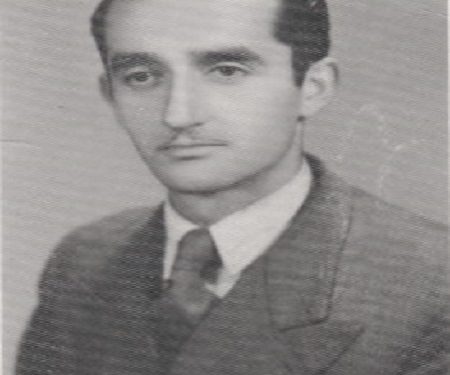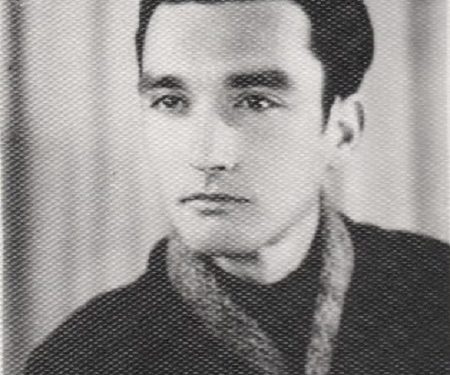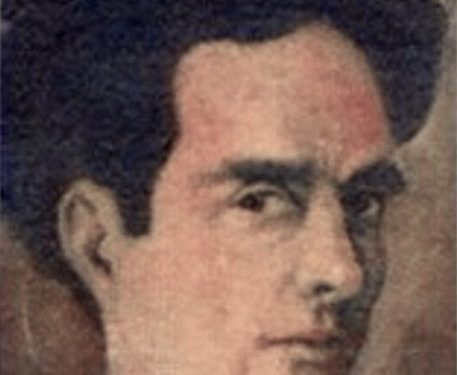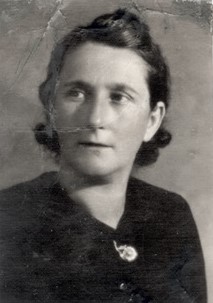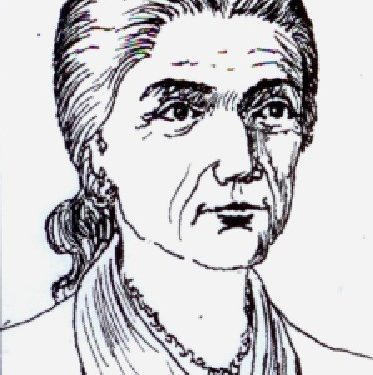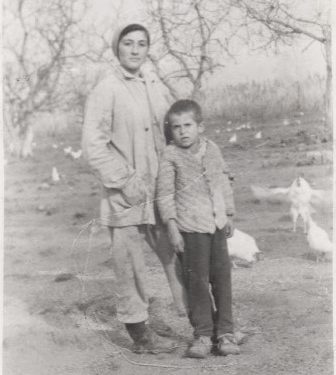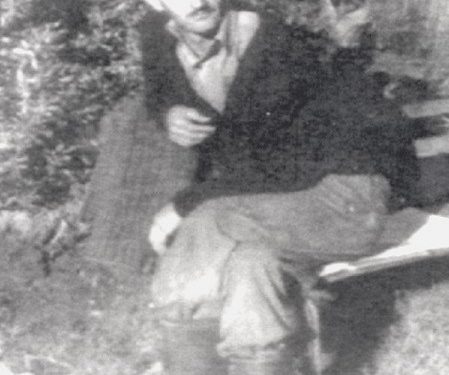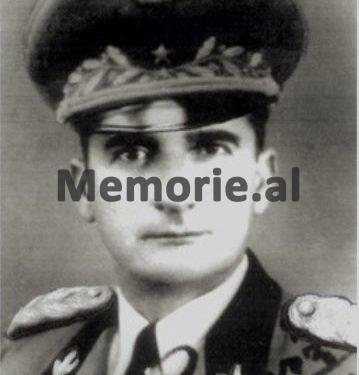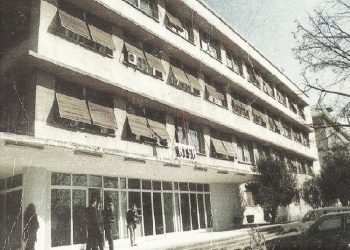From Lek Pervizi
Part fourteen
THE ODYSSEY OF INNOCENCE
To my brother Valentin, who for 47 years straight,
endured the ideological storms of communism,
and what’s more, separated from his wife,
a true Odysseus in the middle of the twentieth century.
Memorie.al/As you enter Skuraj and cross the Urdhazës stream, the mountainous climb begins, across the hill called Lekbibaj. You pass three mills, known as Gjin Pjetri’s mills, which stand one after the other. You also pass the two-story tower of Ndrec Pjetri, Gjin’s younger brother, and then you come across a rocky ridge on which stands a complex of three stone buildings, the historic towers known as the towers of Gjin Pjetër Pervizi of Skuraj, the leader of the Kurbin uprising. These buildings dominate the entire valley formed by the joining of the Mat and Fan rivers (a branch of the Mat), all the way to Milot. It is almost a fortress that guards and protects the land from the expeditions of foreign invading armies that could penetrate that gorge, until they were met by the wall of the Skuraj Mountains, where the aforementioned towers stood.
Continued from the previous issue
The Brothers and Other Elaborations
From 1943 onward, Valentini had not met his brothers. When he came to Albania in October 1944, he learned that they had taken refuge in the mountains after their houses in Laç and Skuraj were burned down. They had remained hidden with their mother and grandmother for fear of the communists, as we have shown, where they stayed for 8 months under the protection of Nikoll Llesh Gjoka’s family in Skuraj. They returned to the burned house in Laç in April 1945 and then moved to Tirana, where they rented a room. Meanwhile, the mother and grandmother were interned in Berat, where Valentini later joined them.
Of the two brothers, I, the youngest, had found a job at the bookstore of the Korça couple Kote-Pepo, in the former Italian “Marzocco” bookstore, which had been burned during the war and rebuilt by them. They accepted me as a salesman, having known my father when he was on duty in Korça, and they had a good regard for him. This served as a sort of protection for me, because both Llambi Kote and his wife Vrisidha Pepo were communists and had acquaintances and friendships with high-ranking officials, even ministers, like Koçi Xoxe and the head of the government himself, Enver Hoxha. Meanwhile, Genci was trying to find some manual labor. The main thing was to get by, hoping for a change toward a softening of the situation in Albania.
It was thought that the Allies would do something and intervene to normalize the situation, which had become harsher with the establishment of special courts and drastic measures, such as executions, imprisonment, and internment of hundreds of families, as happened with ours. Skipping other circumstances, I will tell you how it became possible for Valentini’s wife to be repatriated. This fact is part of the flow of events that accompanied Valentini’s life.
She came to Tirana to arrange her repatriation documents through “Circolo Garibaldi,” which took care of repatriating Italians who had remained in Albania. It was Genci who secured her stay with friendly families, the Bonati and Toptani families. She came to the bookstore to meet me. She also met the owners, Mr. Llambi Kote and Mrs. Vrisidha Pepo, who learned her story and were very touched.
Accompanied by Genci, she managed to complete the required documents, and the only thing left was the signature of the Minister of Internal Affairs, Koçi Xoxe. What to do?! Should she got herself? What if the same thing happened to her as with Mehmet Shehu?! We didn’t know how to act. Under those circumstances, Gori came to the bookstore where she was supposed to wait for Genci, who had gone somewhere. The owner of the bookstore, Mrs. Vrisidha, was there and invited her to wait with her until Genci arrived. Vrisidha learned about her problem.
“What? The work is left for Koçi’s signature?! Give me the document to see, I might be able to solve this myself.” It was something unexpected. Gori, surprised by such noble behavior, stammered; “Grazie… grazie signora… Lei è troppo buona,” took the document out of her bag and handed it to her. Vrisidha glanced at it and put it in her bag, while telling Gori: “Stay calm. I will go directly to the Minister’s office, as soon as I find out when I can find him there.”
Mrs. Vrisidha kept her word and the next day, around ten o’clock, went directly to Koçi’s office. I was waiting for her return. Not an hour passed when I saw her coming, looking a bit hurried. She entered the bookstore completely smiling, and showed me the signed document.
“I got the signature from the dog!” she said, and went to Mr. Llambi, who was very happy. Then she told us that Koçi had noticed that Gori belonged to Prenk Pervizi’s family and had made a remark. “I told him,” she recounted, “that that woman was a close friend of mine, who wanted to return to her parents. I gave her my word, that’s why I came here for you to do me this favor. He then signed the document, shaking his head.”
Not long after, Gori came with Genci. Her joy cannot be described, as she thanked Vrisidha, completely emotional. At “Circolo Garibaldi,” they were happy and immediately set the departure date, in 10 days. She went to Shkodra, where they let her meet Valentini in prison, as we have shown. Then, the day before her departure, she came to say goodbye to Genci and me and the owners of the bookstore, where the separation from Mrs. Vrisidha was very emotional.
Gori dedicated her salvation to her and called it a miracle. It wasn’t long before a telegram arrived at the bookstore, sent to Mrs. Vrisidha, in which she expressed her joy that she had reunited with her family in Bologna, emphasizing that she would never forget the good deed she had done for her. These were the circumstances that accompanied Gori’s repatriation.
Let’s return to Valentini, who was now in Berat and had the opportunity to communicate with Gori, with some letters, but mostly with postcards, as letters were strictly censored. So much so that Valentini was not receiving Gori’s letters and had written to her asking what was wrong, that he wasn’t receiving letters from her. In a postcard, she told him that she had been writing constantly. So she also started using postcards, with few words. Of course, with her departure, our whole family calmed down, but the problem remained, how long would this separation of the two spouses last?!
Would the situation improve? People hoped for such a thing, but the facts showed otherwise. No kind of softening was seen. The campaign of terror continued, with arrests, trials, death sentences, executions, and imprisonments and internments. This wave included the educated intellectual class, but did not spare the simple population, especially that of the northern regions. Berat, – Valentini told us, – was filled with internees and became a problem.
Some of them were transferred to Kuçova, where they were assigned to work on the construction of the aviation field. Others, to the farms of Valias and Kamza. Then, unexpectedly, relations with Yugoslavia were broken. This caused a massive escape of the northern highlanders to Yugoslavia. As a result, the state took drastic measures against their families, interning them in Berat, which had been designated as an internment center.
Berat had nowhere to send those thousands of internees, who filled the streets and squares of the city. Then the government decided to create another, more isolated center, and chose Tepelena. Not the city, but some villages around, likes Turan, Veliçot and Memaliaj, where there were some abandoned Italian barracks. This transfer happened in August 1948. Valentini was not affected by this transfer, because he was suddenly released, as his three-year sentence had ended.
But my mother and grandmother were included with hundreds of other families, where the total number of internees from the north reached about 3,000 people, the overwhelming majority, old people, women, and children. The situation became harsher and the prospects of an improvement in the situation disappeared. The possibility for Valentini to reunite with Gori was hypothetical. The spiritual suffering of the two spouses grew day by day, without a way out. Valentini felt doubly sentenced.
Meanwhile, something had happened, which on the one hand was a joy for us, because my father had managed to escape to Greece in September 1946, so we were freed from the anxiety of him being caught or killed in the mountains, where he was able to stay for two years, never being detected, due to the strong loyalty of the people who protected and sheltered him. In this escape, Genci and I were involved, with the Mirdita family of Llesh Gziqi and his son, Ndue Lleshi, who had kept him sheltered in their house, in Sauk, for 10 days, almost next to the “Palace of the Brigades.”
But the hero of that event was the driver from Korça, Llazi Sterjo, who had escorted his commander, from Tirana to the Greek border, in the Bilisht area, from where my father had crossed into Greece. Valentini, the grandmother, and the mother received the news from the driver Llazi Sterjo himself, who after escorting his commander, went directly to Berat, to give them the good news. But this did not happen without trouble, because Genci with the driver, Llazi Sterjo, Ndue Lleshi, as well as Mrs. Marta Doda, who was involved in that matter, were sentenced to 10 years in prison, so I was left all alone in Tirana, at the mercy of fate.
Everything we are telling, also takes on the meaning of a painful Odyssey, where instead of the waves and storms of the sea that Ulysses faced, Valentini had to go through the waves and storms of embittered feelings, of great hopes, and of spiritual, physical, and material sacrifices and sufferings. The separation from his wife, of whom he only had memories of a happy youth, caused him an internal revolt, for the injustices that were being done to him, without being guilty of anything.
Even more so, for his beloved Gori, who was completely outside of this situation, and truly fell as a sacrificed victim, on the altar of human idiocy. Because what was happening in Albania, could only be understood as an idiocy, madness, and insanity. The conclusion is, that the world war had ended, and everything that was happening in Albania belonged to a time of peace, while the communist dictatorship was behaving as if in a time of war. This internal war was justified by the definition “class struggle,” which supposed a state of war, which would continue for half a century.
Unexpected Release
We told the story of our parent’s escape, to complete those circumstances that Valentini could not have known how they had developed. He learned everything from me, when he was suddenly released and came to Tirana. How did it happen?! In December 1947, the commander of the Berat camp, Lieutenant Xhaferr Pogaçe, notified him of his release. The three years of his sentence from the Shkodra court had been completed. He initially wanted to stay in Berat, near his grandmother and mother, where he could find some work and help them. But some friends advised him to leave, because there he would always be looked at and treated as an internee.
So in February 1948, Valentini came to Tirana where he reunited with me. A great joy for me that I now had a support and the sadness of loneliness that had enveloped me disappeared. On this occasion, he learned about all of Gori’s efforts to get her repatriation documents. In this, she had had the support, especially of Genci, who accompanied her to every office and instance.
But the main role was played by “Circolo Garibaldi,” which facilitated the issuance of the documents, where only the signature of the Minister of Internal Affairs was missing. As we explained, the difficulty of approval by Koçi Xoxe was the main obstacle. But a good person came out, Mrs. Vrisidha Pepo, who solved that problem. May God never leave you without good people!
Valentini’s release and his arrival in Tirana made everyone who knew us happy. He had the opportunity to thank Mrs. Vrisidha and Mr. Llambi, for the support they had given Gori. Also, the Bonati and Toptani families, where Gori had stayed during the time of arranging the documents, which lasted about a month. Meanwhile, he met some former academic friends, who had not suffered anything and were employed as accountants, near some enterprise.
This gave him hope that he might also get some work. Then he learned how our parent’s escape happened, and he met and befriended those who sheltered him, Ndue Lleshi, who had been released with a pardon, which was made on November 28, 1947, on the 35th anniversary of Independence. The owners of the house where we lived, Mr. Qazim Zyma and his wife, Mrs. Nurie, were also happy.
Qazim was a former major in King Zog’s guard and like him; his wife knew our parent well and showed that friendship by not charging us rent for the room they had given us. Mr. Qazim took it upon himself to introduce Valentini to accounting matters, where at that time the mastery of what was called “doppia partita” in accounting was important. But this didn’t work out, because as soon as they found out who he was, the door was closed to him.
In all that we have said, the most important thing was that Valentini was given the opportunity to communicate with his wife, with letters. She was very happy about his release, and expressed the possibility of her coming, to reunite with Valentini again. But they had to proceed carefully in this direction and Valentini kept Gori with good words, for such a solution. Because in Albania, the wave of terror continued and signs of a shaking of relations with Yugoslavia were being noticed. Tito and Stalin had started to disagree on some points.
This was noticed in the arrival and contacts of various emissaries of the two sides with the Albanian leaders. Where some of them came and went from Belgrade and Moscow. It was said that that summer, Marshal Tito would visit Albania. That this visit would culminate in the declaration of the inclusion of Albania in the Yugoslav Federation, as the seventh Republic. For this matter, Tito’s special envoy, Stamboliç, had come to Tirana. Something was boiling, covered with great secrecy. But in the people, such words were circulating.
In these new circumstances, which were created for Valentini, Gori wrote to him that in Italy, they had stopped her from receiving Valentini’s salary, and were asking for a power of attorney from him.
So we took an interest and Valentin drew up such a power of attorney, with a notary. But that power of attorney had to be approved and sealed at the Ministry of Foreign Affairs and the Yugoslav embassy, which represented Albania. This task fell to me, because Valentini had found a job as a mechanic, in a car workshop. How about this, that in the Ministry of Foreign Affairs, as well as in the Yugoslav embassy, I did not encounter any obstacle, and thus the document reached Gori, who was very happy.
Regardless of these circumstances, for Valentini the problem of this separation, imposed by the adverse circumstances, and where a solution was not visible on the horizon, always remained. Both parties suffered from this seemingly hopeless situation, only it was supposed, that it might be realized from unexpected circumstances of the improvement of the situation in Albania. This, to tell the truth, was like a dream, because the reality showed the opposite. The whole possibility of a change towards the normalization of the situation in Albania, under the communist dictatorship, remained according to the Italian expression “in alto mare,” in the open sea.
Broken Hopes
With Valentini’s arrival, I took courage to try to continue school. No school would accept me. A year earlier, I had somehow managed to enter the night gymnasium. This was thanks to Prof. Abdurrahim Buza, the prominent painter, who had known my father well and had admiration for him. He did what he did and registered me. I continued my work at the bookstore. That year, I benefited and was equipped with an Albanian school document. But I risked being drafted into the army.
I needed a regular day school. Meanwhile, Valentini was interested in finding a suitable job, maybe some friends in high positions would help him, like Abdyl Këllezi, who had become very powerful in the party and government. He showed great weakness toward Valentini. When his friend Minella Naçe, spoke to him about him, he had replied arrogantly: “What can you do?! Valentini is a victim of the times!” With this cynical phrase, this close friend, Abdyl, washed his hands like Pilate, of the innocent Valentini.
Minella was scandalized. “How can you, Abdyl, call your closest friend a victim of the times?! I don’t want to see you again!” Valentini was also worried about me. He directed me to a new economic high school that was opening, where I managed to enroll, because the number of students was not being filled. After two months, they expelled me with ceremony, along with Qazim Mulleti’s son, Reshit. They didn’t beat us. I had also been expelled from the Artistic Lyceum the year before, from the competition. Also from a course for geometrists, where the Minister of Industry himself, Abedin Shehu (who later, supposedly killed himself), had chased me out.
At that time, not only me, but all students from reactionary and de-classed families, were expelled, even beaten. This had also happened with the Artistic Lyceum, from which all students from reactionary families were chased out, with a ceremony of beating, with kicks and punches, by their own friends from the Youth Organization. Suddenly, the events of the break with Yugoslavia happened. Where all those bad measures that had been implemented until then were blamed on it.
The expelled students returned to the desks where they had been. On this occasion, I took heart and decided to present myself again at the Artistic Lyceum. Competition. I won. Although they made some indirect attempts to remove me and not allow me to continue. Valentini was happy. In all those bad things, a hope of normalization was beginning to be born, although a painful one. The letters from Italy were more regular. We had hope that Gori, might help us with packages and money. From our father, of whom we knew nothing, through Gori, we learned that he was well. He continued to stay in Greece.
Under these conditions, Valentini’s prison friend, Zef Mazrreku, or Zef Agimi, who had a friendship with the painter, Fadil Pllumbi, who had been appointed as the person in charge of the five-year liberation exhibition, which would open on November 29, 1949, made me work as a painter in that exhibition. Well-known painters, Sadik Kaceli, Bukurosh Sejdini, Safo Marko etc., worked there. Fadil Pëllumbi, was also a close friend of Genci and knew me as well, so he made that good gesture.
I earned some money and we were encouraged, that we might manage to help the grandmother, mother, and Genci. When we received the bad news of the grandmother’s death in Tepelena! It was not a job that could be done; the torn sack cannot be held with patches. Meanwhile, other black clouds were gathering over us. I had bad dreams, with turbulent rivers, collapsed bridges, threats from wild animals, etc. How can you not believe in dreams, when they somehow came true?! What did they have to do with our fate?! The events that happened, would give me some right.
It was March 1950. Sometime in the evening of an ordinary day, a face I had seen somewhere, but did not recognize, appeared in the bookstore. It was Ded Gjomarku, recently released from prison, after five years. He was coming from the Lekaj camp. Where would he go? His whole family was interned in Tepelena. Genci had directed him to us, his cousins, or uncles. Alarm! The Sigurimi was guarding us, from all four sides. They were waiting, lest we take a wrong step. It turned out that they had released Deda on purpose. The game was rigged. They arrested me and Valentini, forcing us to reveal where Deda might have gone, who, supposedly, had disappeared and they could not find him.
They had arrested me when I was with Deda, and separated me from him. So that we would be convinced that he had managed to escape to the mountains! They threw us in different cells and finally locked us in the medieval castle of Porto-Palermo, along with many others. Prison beyond prison! No news for Deda. The word spread that Ded Gjomarku had gone to the mountains, to organize the escapees. He had escaped the Sigurimi organs, while the two sons of Prenk Pervizi had been arrested and disappeared somewhere. A beautifully rigged plan! Memorie.al




